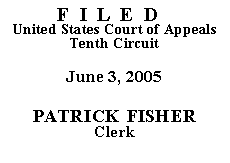

UNITED STATES OF AMERICA,
Before SEYMOUR, LUCERO, and O'BRIEN,
Circuit Judges.
After examining the briefs and appellate record, this panel has determined
unanimously that oral argument would not materially assist the determination of
this appeal. See Fed. R. App. P. 34(a)(2); 10th Cir. R. 34.1.(G). The case is
therefore ordered submitted without oral argument.
Jaime Lopez-Marques pled guilty to one count of possession with intent to distribute in excess of fifty grams of methamphetamine in violation of 21 U.S.C. §§ 841(a)(1) and (b)(1)(B). On appeal, Lopez-Marques' counsel filed a brief pursuant to Anders v. California, 386 U.S. 738 (1967), and moved for leave to withdraw. For the reasons set out below, we conclude the case is wholly frivolous, grant counsel's motion to withdraw and dismiss the appeal.
Anders holds that if counsel finds a case to be wholly frivolous after conscientious examination, he may so advise the court and request permission to withdraw. Id. at 744. Counsel must submit to both the court and his client a brief referring to anything in the record arguably supportive of the appeal. Id. The client may then raise any point he chooses, and the court thereafter must undertake a complete examination of all proceedings to determine whether the appeal is in fact frivolous. If it so finds, it may grant counsel's request to withdraw and dismiss the appeal. Id. Counsel has provided Lopez-Marques with a copy of his appellate brief and Lopez-Marques has filed his own brief.
In his Anders brief, counsel identified no nonfrivolous appealable issues for our consideration. Lopez-Marques filed his own pro se(1) supplemental brief raising two issues on appeal: 1) methamphetamine was unconstitutionally moved in 1971 from a schedule III to a schedule II drug; and 2) L isomer methamphetamine is not a controlled substance.(2) In United States v. Sullivan, this Court held the procedure reclassifying amphetamine and methamphetamine was adequate and that amphetamine was properly classified as a Schedule II controlled substance. 967 F.2d 370, 373 (10th Cir. 1992). Lopez-Marquez provides no new basis for challenging that procedure and consequently, his claim is without merit.
As to Lopez-Marques' second argument, methamphetamine is clearly classified as a controlled substance. 21 C.F.R. § 1308.12(d); United States v. Youngblood, 949 F.2d 1065, 1066 (10th Cir. 1991). Lopez-Marques tries to distinguish between D and L isomer methamphetamine, arguing only D isomer methamphetamine is a controlled substance and that the government failed to prove that the methamphetamine in his possession was D isomer. The distinction between methamphetamine isomers is irrelevant because 21 C.F.R. § 1308.12(d) not only lists methamphetamine as a controlled substance but also "its salts, isomers, and salts of its isomers." Courts in a variety of contexts have routinely rejected the necessity of proving particular isomer form. See United States v. Scott, 725 F.2d 43, 44-45 (4th Cir. 1984) (discussing "isomer strategy" in the context of cocaine). We also decline to do so.
In sum, after a careful review of the record, we conclude the case is wholly frivolous.
Appeal DISMISSED. Counsel is permitted to withdraw.
Entered by the Court:
Terrence L. O'Brien
United States Circuit Judge
*. This order and judgment is not binding precedent except under the doctrines of law of the case, res judicata and collateral estoppel. The court generally disfavors the citation of orders and judgments; nevertheless, an order and judgment may be cited under the terms and conditions of 10th Cir. R. 36.3.
1. We construe pro se pleadings liberally. Ledbetter v. City of Topeka, Kan., 318 F.3d 1183, 1187 (10th Cir. 2003).
2. An "isomer" is "one of two or more compounds, radicals or ions that contain the same number of atoms of the same elements, but differ in structural arrangement and properties." Merriam-Webster's Collegiate Dictionary (10th ed. 1998).